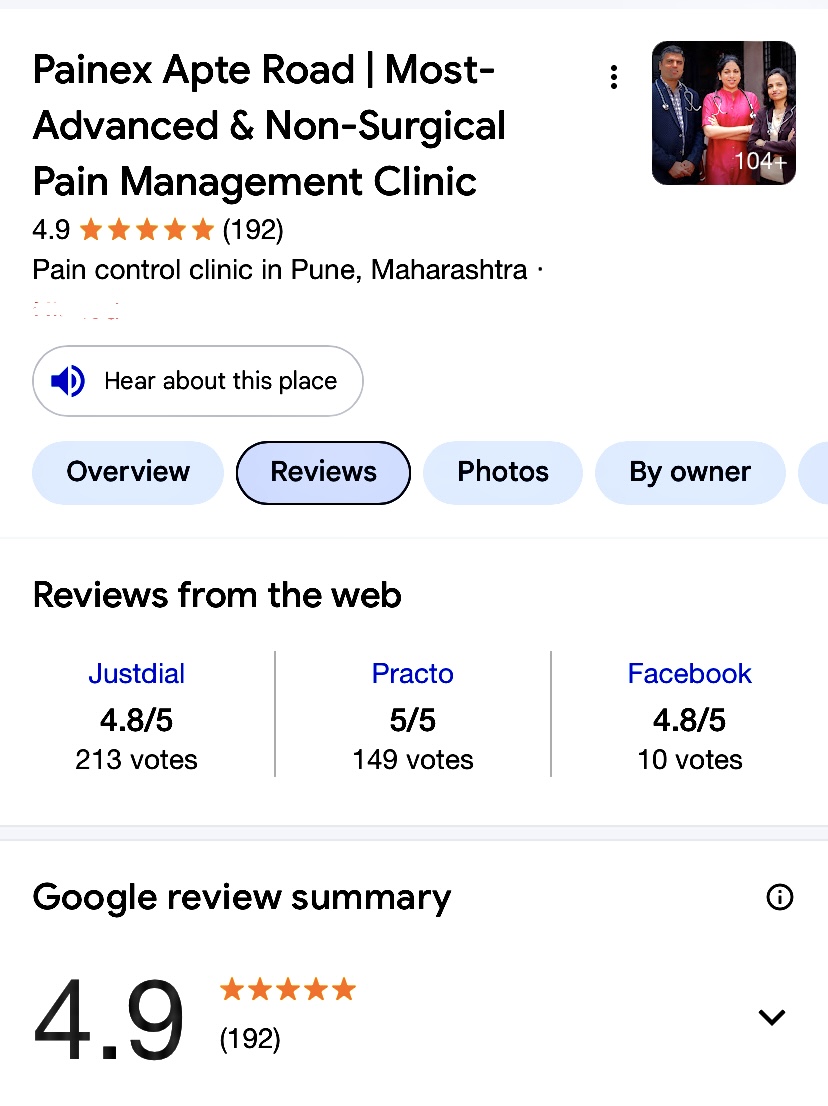
- Home
- About Us
- Conditions We Treat
- Back Pain Treatment In Pune
- Slipped Disc Treatment in Pune
- Migraine & Its Treatments
- Heel Pain Treatment in Pune
- Trigeminal Neuralgia Treatment in Pune
- Nerve Pain & Its Treatment
- Sciatica Treatment In Pune
- Knee Pain Treatment in Pune
- Diabetic Neuropathy
- Neck Pain Treatment In Pune
- Testicular Pain Treatment
- Pelvic Pain : Causes, Diagnosis and Treatment
- Shoulder Pain & Its Treatment
- Fibromyalgia Treatment in Pune
- Cancer Pain Treatment
- Carpal Tunnel Syndrome Treatment in Pune
- Interstitial Cystitis Treatment
- Postherpetic Neuralgia Treatment in Pune
- Training
- Book an Appointment







